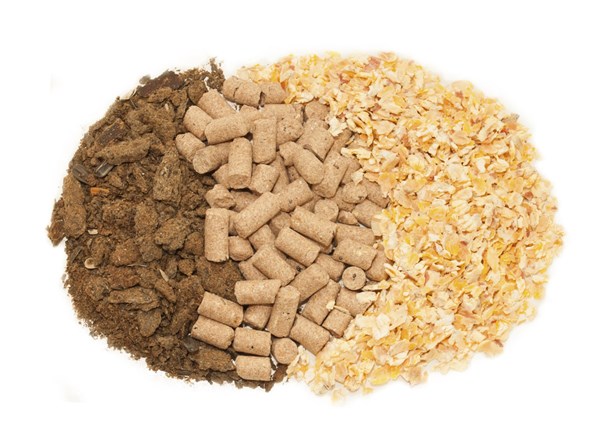 Credit: Thinkstock Not every horse needs a fine-tuned feeding program but when one does, it is sound advice to consult an equine nutritionist.
Credit: Thinkstock Not every horse needs a fine-tuned feeding program but when one does, it is sound advice to consult an equine nutritionist.An active horse needs to eat a well-balanced, quality diet. Some horses thrive on only hay whereas others need additional supplements to maintain weight and energy. Each horse must be fed as an individual, with the diet tailored to the horse and the exercise demands. This is where a competent equine nutritionist may have a role in helping you set up a safe feeding program that also works within your budget.
Not every horse needs a fine-tuned feeding program but when one does, it is sound advice to consult an equine nutritionist. While such a consultation may be considered to help with the high energy demands of an equine athlete, it also has an important role in managing the pregnant mare, the growing foal, the sick horse, or helping an aged horse weather his golden years in good health. Changes in pasture quality, as for example with drought, also create conditions that warrant feed manipulation. Working with an equine nutritionist in conjunction with feed, pasture and soil analysis gives you the most accurate assessment of the nutrients you horse receives and the best ability to balance the diet.
To become an equine nutritionist relies on pursuing certain avenues of study. A veterinarian (DVM or VMD) and especially one who also has a board-certified specialty degree in animal nutrition is the most qualified source for making feeding recommendations. But, others who have pursued advanced degrees, like PhDs, in animal or equine science or in animal nutrition may be very well qualified. When initiating a conversation with a professed nutritionist, it helps to ask about their educational background so you can get an idea of their breadth of knowledge and qualifications.
Nutritionists who work for specific feed companies often bring a great deal of knowledge (and free advice) to your barn but be aware that they have a vested interest in only one brand of feed. There may be many different product lines produced by that company and most commercial feeds are quality controlled. What is particularly relevant to you is if this brand is available at the feed store in your community.
Nutritionists are also found at universities or in cooperative extension agencies. Other nutritionists may not work for any particular company or agency but rather serve as independent consultants with no bias toward a particular brand. What you want to find is a nutritionist able to make recommendations based on science and practicality in how a program will fit into your horse’s needs and your financial constraints.
Besides contacting specific feed companies to seek out an equine nutritionist, look also at the credentials of those who speak at seminars and educational venues or who write books – this will give you an idea about how well versed these people are in horse nutrition and their philosophical approach to feeding. Additional links to qualified nutritionists can be found at the Equine Science Society (http://www.equinescience.org) and the American College of Veterinary Nutrition (www.acvn.org).


